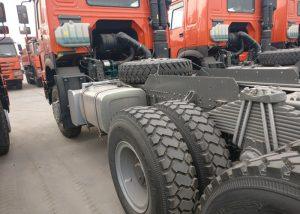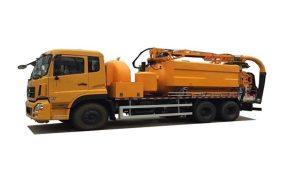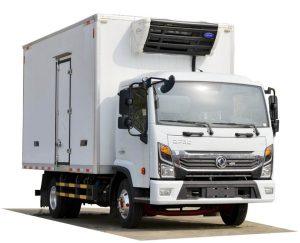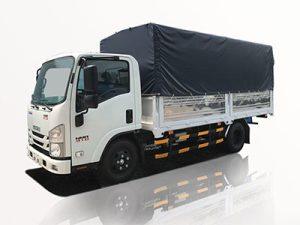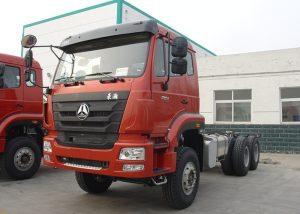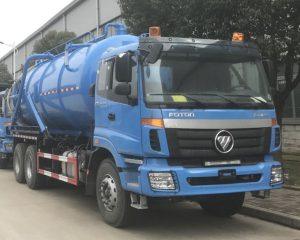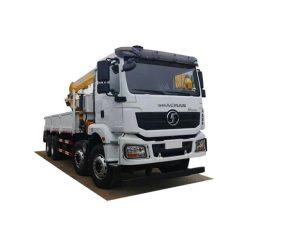Monday to Saturday - 8:00 -17:30
CNG Garbage Trucks: Enhancing Waste Management with Clean Energy
As cities around the world grapple with increasing waste production and the need for sustainable solutions, the introduction of CNG (Compressed Natural Gas) garbage trucks offers a cleaner, more efficient alternative to traditional diesel-powered waste collection vehicles. This article explores the benefits, technology, operational considerations, and future of CNG garbage trucks in waste management systems.
What is a CNG Garbage Truck?
A CNG garbage truck is a waste collection vehicle powered by compressed natural gas instead of diesel or gasoline. These trucks are designed specifically for the task of collecting and transporting refuse while emitting fewer pollutants and greenhouse gases.
The Rise of CNG as a Clean Energy Source
Natural gas has gained popularity as a cleaner alternative to traditional fuels due to its abundance and lower emissions. As a result, CNG garbage trucks have become a preferred choice for municipalities looking to modernize their fleets.
Benefits of CNG Garbage Trucks
1. Environmental Impact
CNG garbage trucks significantly reduce harmful emissions compared to traditional diesel trucks. This results in improved air quality, especially in urban areas.
Emission Reduction Statistics
| Type of Emission | Diesel Trucks | CNG Trucks | Reduction Percentage |
|---|---|---|---|
| Carbon Dioxide (CO2) | 20% of total emissions | 10% of total emissions | 50% |
| Nitrogen Oxides (NOx) | 30% higher | 75% lower | 75% |
| Particulate Matter (PM) | 20% of total emissions | 90% lower | 90% |
2. Cost Efficiency
With lower fuel prices and government incentives for using cleaner energy, CNG garbage trucks can lead to significant operational savings over time. Additionally, they often require less maintenance compared to their diesel counterparts.
3. Noise Reduction
CNG engines operate more quietly than diesel engines, reducing noise pollution in residential areas during waste collection.
4. Reliability and Performance
CNG garbage trucks are designed with robust engines that provide reliability and consistent performance under various driving conditions. Their fuel efficiency also translates to longer driving ranges between refueling.
5. Safety Considerations
Adopting CNG technology can enhance safety standards, as CNG is less flammable than traditional fuels and has a lower risk of spills.
Challenges of CNG Garbage Trucks
1. Infrastructure Requirements
One of the major challenges is the need for CNG refueling infrastructure. Cities need to invest in building adequate refueling stations to support a growing fleet of CNG vehicles.
2. Initial Investment Costs
The upfront cost of purchasing CNG garbage trucks can be higher than diesel trucks. However, the long-term savings often justify the investment.
3. Limited Range
CNG vehicles may have a limited driving range compared to diesel trucks, necessitating careful planning of waste collection routes.
Operational Considerations for Municipalities
1. Fleet Planning and Implementation
Assessing Your City’s Needs
Cities must evaluate their waste collection needs and determine the appropriate number of CNG garbage trucks required. Factors to consider include population density, waste generation rates, and service frequency.
Phased Implementation
Transitioning to a CNG fleet can be accomplished in phases, allowing municipalities to gradually adapt to the new technology and overcome challenges.
2. Training and Support
Staff training is essential for the successful operation and maintenance of CNG garbage trucks. Provide ongoing education on safety, refueling procedures, and routine maintenance.
3. Community Engagement
Informing the community about the environmental benefits of CNG garbage trucks can foster public support and acceptance of the transition to cleaner waste management solutions.
Real-World Examples of CNG Garbage Truck Implementation
1. Los Angeles, California
Los Angeles has integrated CNG garbage trucks into its waste management fleet, significantly reducing emissions while improving air quality in the densely populated city.
2. Seattle, Washington
Seattle’s Public Utilities adopted CNG trucks as part of its commitment to sustainability. The city has seen a marked reduction in waste-related emissions since switching to cleaner vehicles.
3. Montreal, Canada
Montreal implemented a CNG garbage truck pilot program and reported success in reducing noise and emissions, improving the living conditions of its residents.
Future of CNG Garbage Trucks
1. Technological Advancements
Advancements in hybrid technology and alternative fuel sources, including renewable natural gas (RNG), may further enhance the benefits of CNG systems.
2. Policy Support and Incentives
Government incentives and policies promoting clean energy use will play a crucial role in the continued growth and adoption of CNG garbage trucks.
3. Expanding Infrastructure
As demand for CNG vehicles increases, the development of CNG infrastructure will be essential to support the transition in urban areas.
Frequently Asked Questions (FAQs)
1. What is the difference between CNG and LNG?
CNG (Compressed Natural Gas) is stored at high pressure, while LNG (Liquefied Natural Gas) is cooled to a liquid state for storage. CNG is commonly used in vehicles, whereas LNG is typically used for larger transport needs.
2. Are CNG garbage trucks safe to operate?
Yes, CNG garbage trucks are considered safe due to the properties of natural gas, which is less flammable and poses a lower risk of spills. Safety measures are implemented to ensure safe storage and operation.
3. How do CNG garbage trucks compare in cost to diesel trucks?
While CNG trucks may have higher initial purchase costs, they typically offer lower fuel prices and maintenance costs, resulting in long-term savings over their lifespan.
4. What maintenance do CNG garbage trucks require?
CNG garbage trucks require routine maintenance similar to diesel trucks, with specific attention to the CNG fuel system, pressure vessels, and engine components to ensure optimal performance.
5. Can CNG be produced from renewable sources?
Yes, renewable natural gas (RNG) can be produced from organic waste through processes like anaerobic digestion, providing an even more sustainable option for fueling CNG trucks.
6. How are CNG garbage trucks refueled?
Municipalities typically establish dedicated CNG refueling stations where garbage trucks can refuel during non-operational hours or alongside traditional maintenance activities.


